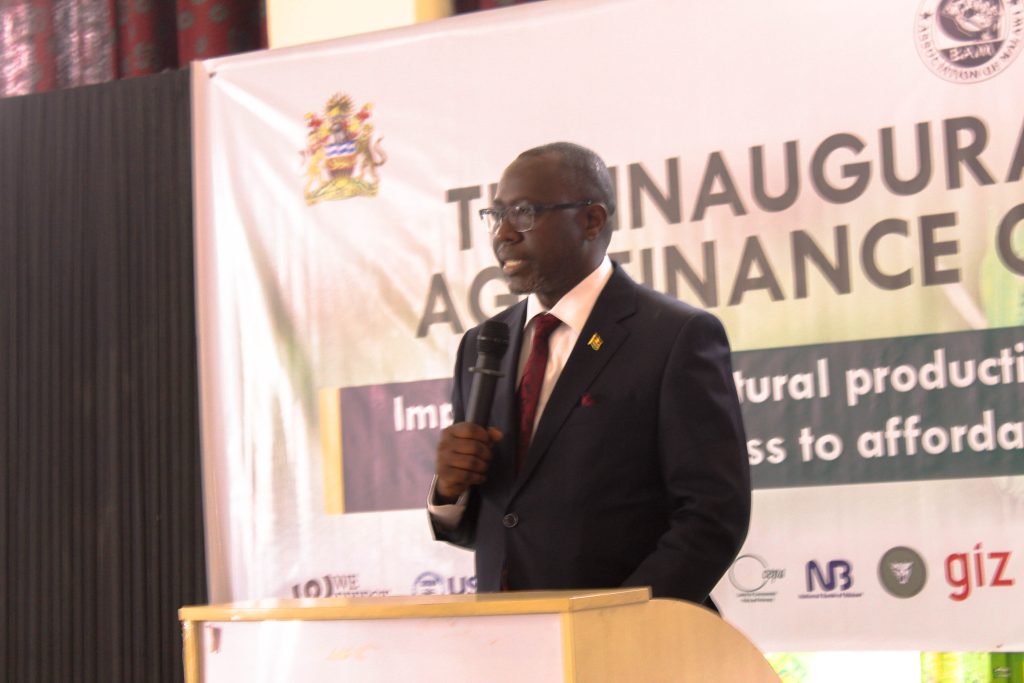
Agriculture
Farmers Union laments gap in agri-financing
November 25, 2021 / Wahard Betha

The Farmers Union of Malawi (FUM) says there is huge information gap between the supply and demand sides of agriculture financing in the country saying there is a need for more interventions and coordination to narrow the gap.
FUM made the remarks during the inaugural annual agri-financing conference that was organized jointly with the Bankers Association of Malawi (BAM) under the theme; Improving Agricultural productivity and commercialization through access to affordable agriculture finance.
FUM Chief Executive Officer (CEO) Jacob Nyirongo said the conference is one way FUM and BAM are utilizing in narrowing the information gap as it gives various stakeholders a platform to discuss and deliberate on how to improve the agri-financial part of the sector.
Nyirongo also said the conference augers well with the aspirations of the country reflected in the Malawi 2063 development agenda which ranks the agricultural sector as the main pillar towards achieving the vision.
He said: “The objectives of this conference are not exhaustive. Our ultimate objective is that through this conference farmers, financing institutions, private sector players and other players along the agriculture value chain should be able to venture into sustainable strategic business partnerships that will fast-track the agriculture transformation agenda.”
“As Union, we strongly believe that challenges that have stagnated our agricultural sector are very diverse hence demanding concerted efforts when attempting to deal with them.”
“It is for this reason that we collaborated with the BAM to initiate the process of creating this platform whereby key players in agriculture sector will be able to have an in-depth discussion on how we can enhance availability, accessibility and affordability of agricultural financing instruments in the country.”
Nyirongo lamented that the country continues grappling with low access and uptake of agricultural financing instruments despite numerous deliberate interventions and programs being implemented by the Government, non-governmental organisations and financing institutions to improve the uptake of agri-financing instruments in the country.
He said the sector will remain rudimentary unless efforts are made by key stakeholders in the agriculture sector to achieve significant increase in productivity, mechanization and commercialization.
In his remarks, Controller of Agricultural Services in the Ministry of Agriculture, Alexander Bulirani, said the Malawi Government believes that boosting agricultural production requires investments in irrigation, mechanization, fertilizer and improved seeds.
Bulirani said Malawi’s agricultural sector cannot grow in the categories of agricultural diversification, value-addition and agro-processing if the country continues to experience low access to finance for capital investment.
He said his Ministry has embarked on various interventional programs to ensure that farmers that are lagging behind due to lack of access to finance are assisted.
Bulirani said: “The government is currently implementing the Agricultural Commercialization Project (AGCOM) across the country, a flagship project that is providing the much needed capital to farmers for them to commercialize their production.”
“The government also instituted the Malawi Industrial and Agricultural Investment Corporation (MAIIC) in 2018 mandated to drive private sector-led economic development through mobilization of finance, skills and technology for sustainable wealth creation.”
“My Ministry also launched the Farmer Organization Strategy late last year and through this strategy, the Ministry is collaborating with other stakeholders to build strong farmer organizations that will be able to manage agricultural loans thereby reducing the risk of lending money to smallholder farmers.”
He also announced that the Ministry of Agriculture will soon be collaborating with other Ministries to embark on developing the Agricultural Financing Policy that will significantly contribute towards creating enabling environment for the agricultural commercialization agenda.
BAM Second Vice President Zandile Shaba urged banks in the country to come up with deliberate policies to finance agriculture saying the development can increase the added value of raw materials; strengthen local rural economies, food security and nutrition; and improve the quality of life in many homes at risk of exclusion and vulnerability.
Shaba stressed that policies, incentives and regulatory frameworks that safeguard and promote agro-industries have proven to be highly effective in lifting rural populations out of poverty in many countries.
She said from now onwards the country must take a full value chain approach from the farm to the table by greatly investing in the private sector across the agricultural value chains including modern seed and fertilizer companies, agricultural mechanization, irrigation and water management, warehousing, commodity exchanges, food manufacturing and processing, logistics, cold storage and transport.
Shaba said: “Malawi should not be a consumption center; it must be an agro-industrial center. Malawi must export processed tobacco, not leafy tobacco.”
“It must export specialized coffee with distinctively ‘aroma of Malawi’ instead of coffee beans, and export finished textile products and not cotton lint.”
“With access to finance in mind, we should not forget that modernization of the agricultural sector requires that we improve the functioning of agricultural markets.”
“Rapid progress has to be made on the development of commodity exchanges to improve farmers’ access to markets.”
“Commodity exchanges allow for better price discovery and can be effectively linked to warehouse receipt systems that allow farmers to use their grains as collateral for accessing credit from financial institutions.”
Shaba explained that structured markets are important for balancing capacities and prices of agricultural commodities and broadening of foreign exchange earnings.
She said if the structured markets are supported by export mandates, they could limit informal cross-border trade and increase agricultural exports.
The conference was premised on the following objectives: To provide a platform for open debate on policy and regulatory instruments that can enable effective performance of the agricultural financing sector; to provide a platform to financial service providers to present portfolios of their financing instrument that are tailor-made for agriculture; to provide a platform to farmers and agriculture practitioners to provide feedback on the way agricultural financing instruments are designed and; to provide an opportunity to financing institutions to market their products to farmers and other stakeholders.































